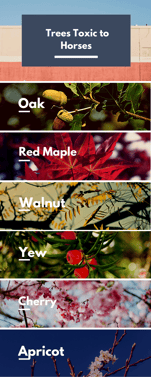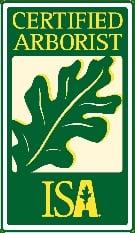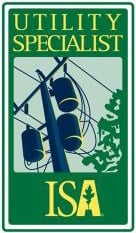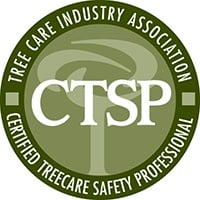This week our Plant Health Care Manager and Arborist Representative made a yard visit; where horses were present and tree/plant toxicity was a concern. Most toxicities from trees come from poisons released through leaves after leaf fall. Keep your horses safe and away from trees or tree chips that are considered toxic if ingested. Below, see the list of 6 trees commonly found throughout NC and considered toxic to horses.

1. Oak: There are many different varieties of oak trees. However, all types of oaks carry a few indicators that make the tree easy to spot. Spot an oak tree by the acorns the trees produce. Oak trees possess lobed shaped leaves in the canopies and scaley bark on the trunk of the tree. Oak leaves can cause serious digestive issues in horses.
2. Red Maple: Come fall, the bright red/crimson color sets the red maple apart from other maple trees. Also, the unique shape of a red maple leaf sets it apart from other trees. Each red maple leaf holds 3 major lobes and sharp/ribbed edges.
3. Walnut: Walnuts start by growing in a green husk before turning light to deep brown. The bark showed on the trunks of walnut trees often run deep and have a specific curvature.
4. Yew: The yew trees are categorized as evergreens and can be spotted easily by the fruit it produces. The fruit stands out among the bright green needles with its bright red color. This type of tree is seen less than other evergreens such as junipers or Leyland cypress.
5. Cherry: Flowers on cherry trees are small and grow in pink and white clusters. The flower stalks grow from one central location on a tree branch. The bark on cherry trees is reddish-brown and smooth.
6. Apricot: Fruit trees such as apricot, plum, and peach are considered toxic to horses due to the poisonous cyanide that is released from the leaves once the leaves fall from the tree.
We hope you find this list helpful. Although trees that make this list are beautiful, they can be dangerous if in near proximity to horses. If you have any questions or concerns about trees on your property, our Certified Arborists are here to help.








